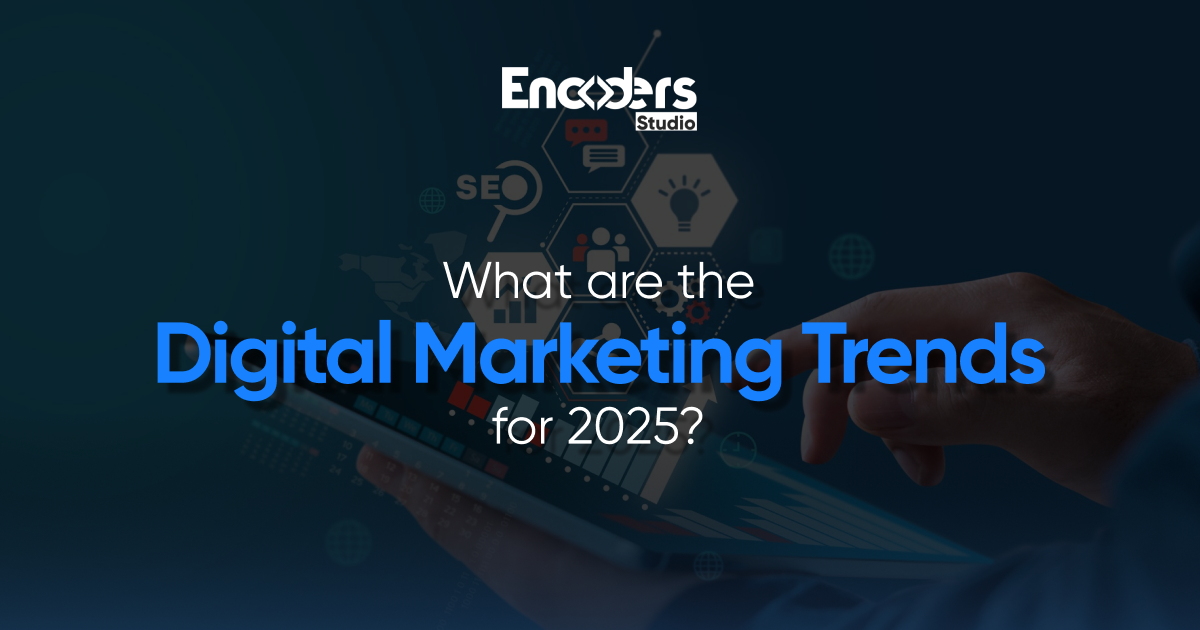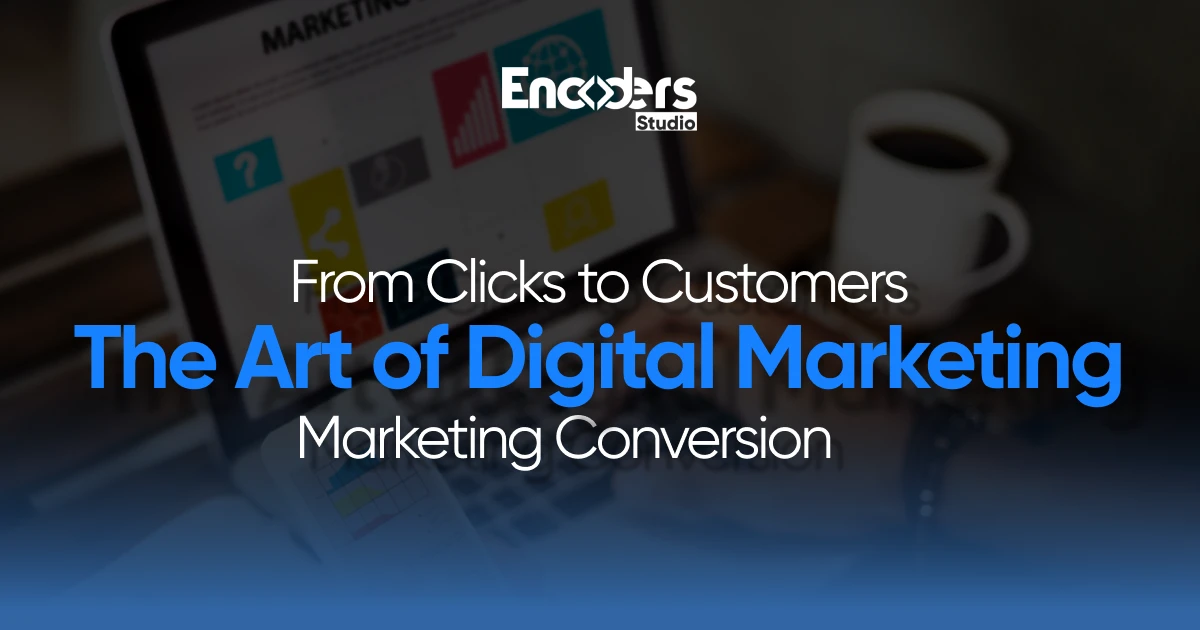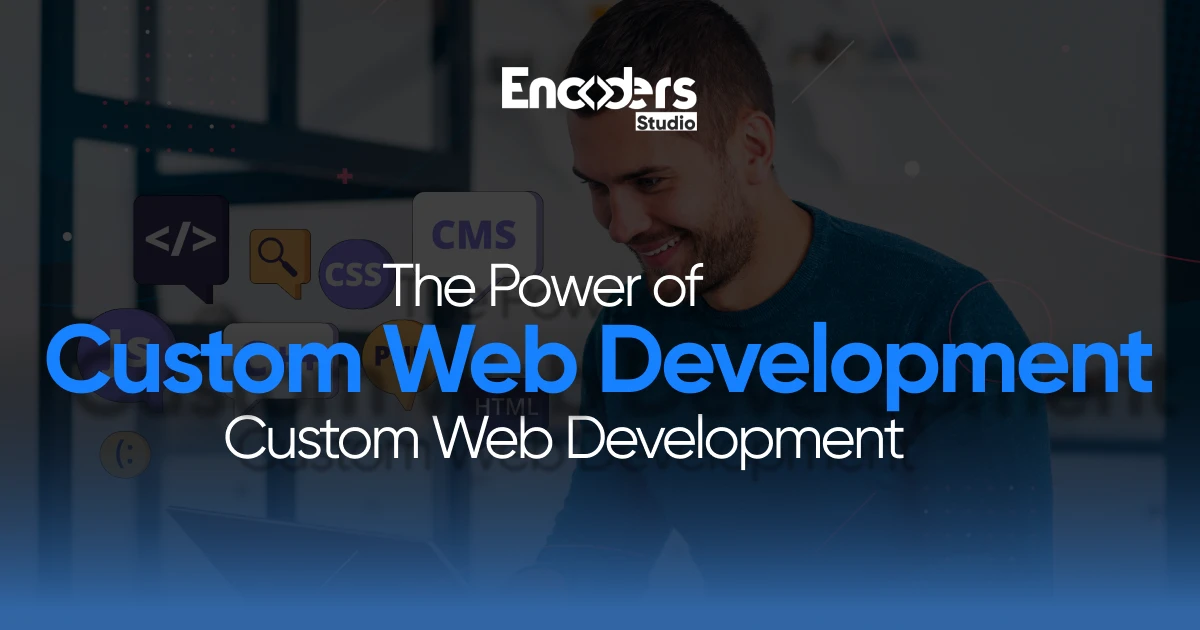Is your digital marketing strategy ready for the future? 87% of marketers are worried about technology, including AI, replacing jobs in their industry. As technology evolves and consumer behavior shifts, staying ahead of digital trends isn’t just important but it’s essential for survival. If you’re managing campaigns in-house or working with an agency, understanding what’s on the horizon can help you make informed decisions now. The digital landscape is changing rapidly, and those who embrace innovation will be the ones leading the way. Make sure your strategy is ready for what’s next to keep your business thriving.
What is Digital Marketing?
Digital marketing is the practice of promoting products, services, or brands using online platforms and digital channels. This form of marketing leverages tools like social media, search engines, email, and websites to reach potential customers. Unlike traditional marketing, digital marketing allows businesses to directly engage with their audience, track results, and adjust strategies in real-time.
Top 10 Digital Marketing Trends for 2025
Understanding and adapting to these changes will be essential for marketing success in the coming years.
1. Hyper-Personalization Through Predictive AI
Artificial intelligence has moved beyond basic automation to become the cornerstone of forward-thinking digital marketing strategies. In 2025, AI will transform from a helpful tool to an essential marketing partner.
The impact of AI on marketing operations continues to expand dramatically. A recent McKinsey report reveals that 92% of businesses from various sectors plan to invest in generative AI tools. This efficiency revolution is creating new possibilities for businesses of all sizes.
The era of one-size-fits-all marketing messages is firmly behind us. Consumers now expect personalized experiences tailored specifically to their needs and behaviors.
AI systems in 2025 will analyze thousands of data points to predict customer needs before customers themselves recognize them. This goes far beyond simple demographic targeting. It creates truly individualized marketing experiences based on behavioral patterns, purchase history, browsing habits, and even emotional responses.
Key developments include:
- AI that crafts unique content variations for different audience segments automatically
- Predictive purchase engines that identify products customers need before they search for them
- Dynamic pricing models that adjust offers based on individual customer value and behavior
- Visual and voice recognition systems that customize experiences based on emotional responses
2. AI-Driven Content Creation and Optimization
Content creation has traditionally required significant human resources. In 2025, AI will dramatically change this equation.
Advanced AI content systems will not only generate high-quality text, images, and videos but will also continuously optimize them based on performance data. These tools will work alongside human marketers to enhance creativity rather than replace it.
The most effective implementations will include:
- AI content systems that maintain a consistent brand voice across all channels
- Automated content optimization based on real-time engagement metrics
- Multilingual content generation that preserves cultural nuance and brand messaging
- AI-assisted video and image creation tools that reduce production costs
3. Voice Search Optimization
The way people search for information continues to evolve, with voice becoming increasingly dominant. By 2026, voice search will account for approximately 36% of all search queries, dramatically changing how brands need to approach SEO and content strategy.
Optimizing for voice search requires a fundamentally different approach than traditional SEO.
Voice queries tend to be longer, more conversational, and often phrased as questions. Successful voice SEO strategies will focus on natural language patterns and providing direct answers to specific questions.
Effective voice optimization will require:
- Content structured around conversational questions and answers
- Local SEO optimization for “near me” voice queries
- Schema markup that helps voice assistants understand your content
- Page speed optimization for faster voice search response times
4. Conversational Marketing Platforms
Beyond voice search, conversational interfaces will become central to marketing strategy.
Conversational marketing uses real-time interactions to move customers through your marketing and sales funnels. In 2025, these systems will become more sophisticated, handling complex interactions while maintaining a natural, human-like conversation flow.
Leading trends used by top-notch digital marketing agency include:
- AI chatbots that handle 85% of customer service interactions without human intervention
- Voice commerce systems are integrated directly into marketing campaigns
- Conversational analytics that provide deeper insights into customer intent
- Emotion-sensing technology that adjusts conversations based on customer sentiment
5. Metaverse Marketing
Virtual environments are evolving from gaming platforms to marketing channels, creating entirely new ways for brands to engage with audiences. Major brands are establishing permanent presences in virtual environments where consumers spend increasing amounts of time.
These virtual brand spaces go beyond simple advertising to create interactive experiences that engage users in entirely new ways. Companies that establish early footholds in these spaces will gain significant advantages in brand recognition and customer loyalty.
Emerging approaches include:
- Virtual stores where customers can experience products in 3D
- Branded games and experiences that offer real-world rewards
- Virtual events and product launches with global accessibility
- Digital twins of physical retail locations with enhanced features
6. Augmented Reality Marketing
While fully virtual environments continue to grow, augmented reality (AR) applications that blend digital elements with the physical world offer immediate marketing opportunities.
AR provides a bridge between traditional and immersive marketing, allowing brands to enhance real-world experiences with digital overlays. This technology will become more accessible to businesses of all sizes in 2025.
Practical applications will include:
- AR product visualization in customers’ own spaces
- Interactive packaging that comes alive when viewed through a smartphone
- Location-based AR promotions that guide customers to physical stores
- Virtual try-on experiences for clothing, accessories, and cosmetics
7. Privacy-First Marketing
Third-party cookies are going away, and privacy rules are getting stricter worldwide. Because of this, digital marketing in 2025 will need new ways to collect data and target customers. First-party data (information collected directly from your audience) will become the most valuable marketing asset in 2025. Businesses that have established robust first-party data strategies will gain significant competitive advantages in targeting precision and customer insights.
Effective strategies will include:
- Value exchanges that incentivize customers to share data willingly
- Interactive content that collects preferences while providing personalized experiences
- Customer data platforms that unify information across touchpoints
- Loyalty programs are designed specifically to enrich first-party data profiles
Contextual Targeting Renaissance
As individual tracking becomes more restricted, contextual targeting is making a sophisticated comeback.
Rather than targeting based on user profiles, contextual targeting focuses on the environment where ads appear. Advanced contextual systems in 2025 will use AI to understand content at a much deeper level than previous generations of this technology.
New approaches will feature:
- AI-powered content analysis that understands context beyond keywords
- Sentiment matching that aligns ad tone with content emotional states
- Contextual video analysis that identifies brand-suitable moments
- Real-time contextual adjustment based on trending topics and social sentiment
8. Social Commerce Integration
Social media platforms continue their transformation from marketing channels to complete shopping ecosystems. In 2025, the line between social media marketing and e-commerce will be virtually indistinguishable.
Social commerce sales are projected to reach $1.2 trillion, growing at more than three times the rate of traditional e-commerce. This explosive growth is changing how brands approach both social media strategy and sales channel development.
Social platforms are developing increasingly sophisticated native shopping capabilities.
Instead of redirecting users to external websites, complete purchase journeys will take place within social apps. This frictionless approach significantly increases conversion rates while providing platforms with valuable transaction data.
Key developments include:
- One-click purchasing directly within social media posts and videos
- Social storefronts with inventory management and customer service integration
- Live shopping events with real-time product demonstrations and limited-time offers
- Social loyalty programs that reward engagement and purchases
Creator Commerce Partnerships
Individual creators are becoming powerful sales channels in their own right.
Beyond traditional influencer marketing, creators in 2025 will operate as independent marketing partners with sophisticated capabilities to drive and attribute sales. Brands that develop strong creator relationships will access engaged niche audiences with high conversion potential.
Emerging models include:
- Creator marketplaces that match brands with relevant influencers automatically
- Revenue sharing models based on actual sales rather than exposure
- Creator-exclusive product variants and collections
- Micro-influencer networks managed through AI matching systems
9. Sustainable Digital Marketing
Environmental concerns are transforming from a niche consideration to a central marketing factor. By 2025, digital sustainability will influence both marketing operations and messaging strategies.
The environmental impact of digital activities is receiving increased scrutiny.
From the energy consumption of websites to the carbon footprint of video streaming, marketers in 2025 will need to consider the environmental impact of their digital activities. Tools for measuring and reducing this impact will become standard components of marketing technology stacks.
Important considerations include:
- Website efficiency optimization to reduce energy consumption
- Carbon footprint measurement for digital marketing activities
- Low-impact alternatives to high-bandwidth content types
- Transparent reporting on digital sustainability efforts
Authentic Sustainability Messaging
Consumers are increasingly savvy about distinguishing genuine sustainability efforts from “greenwashing.”
Brands in 2025 will need to communicate authentic sustainability initiatives with transparency and specificity. Generic claims will be ineffective, while detailed information about tangible actions will resonate with conscientious consumers.
Effective approaches will feature:
- Specific, measurable sustainability claims backed by verification
- Transparent reporting on environmental progress and challenges
- Digital experiences that demonstrate sustainability principles through design
- Partner and vendor selection is based partly on environmental practices
10. Data Visualization and Simplified Analytics
The complexity of marketing data continues to increase, driving demand for more accessible analytics solutions. In 2025, the emphasis of many digital marketing services will shift from collecting more data to making existing data more understandable and actionable.
AI-Powered Insights for Non-Technical Users
Analytics platforms are evolving to deliver clear recommendations rather than just data.
Instead of requiring specialized skills to interpret marketing data, next-generation platforms will automatically extract insights and present them in accessible formats. This democratization of analytics will enable faster, more informed decision-making across organizations.
Key developments include:
- Natural language queries that allow anyone to ask questions about marketing performance
- Automated anomaly detection that identifies problems and opportunities
- Recommendation engines that suggest specific marketing actions
- Predictive modeling accessible to marketers without data science expertise
Visual Storytelling with Data
The presentation of marketing analytics will become more visual and narrative-driven.
Rather than overwhelming users with dashboards full of metrics, effective analytics tools in 2025 will craft coherent stories from data. These narratives will connect marketing activities to business outcomes in clear, compelling ways.
Top digital marketing trends include:
- Interactive data visualizations that allow intuitive exploration
- Automated marketing reports that highlight key insights using visual elements
- Comparative visualizations that benchmark performance against competitors
- Scenario modeling tools that visualize potential outcomes of different strategies
Marketing Trends You Can’t Miss
The digital marketing world of 2025 will reward those who adapt, stay authentic, and use technology wisely. Businesses that focus on true customer value while embracing new trends will lead the way. Now’s the time to assess your strategy and ensure you’re ready for what’s next. The best companies will start preparing today for tomorrow’s marketing reality. By understanding these trends, you’ll build the foundation needed to stay competitive and relevant long into the future.
Want your brand to stand out in the crowded digital world?
At Encoders Studio, we turn your vision into impactful, innovative strategies that connect with your audience and drive results. Our team is dedicated to creating unique digital experiences that make your brand unforgettable.
FAQs
How will AI impact digital marketing in 2025?
AI will enable hyper-personalized experiences, optimize campaigns in real-time, and enhance customer engagement through predictive analytics.
What role will voice and visual search play in 2025?
Voice and visual search will change SEO strategies, requiring brands to optimize content for voice queries and image-based searches.
How important is social media engagement in 2025?
Active social media engagement will strengthen brand loyalty, drive customer relationships, and expand reach through interactive content.




